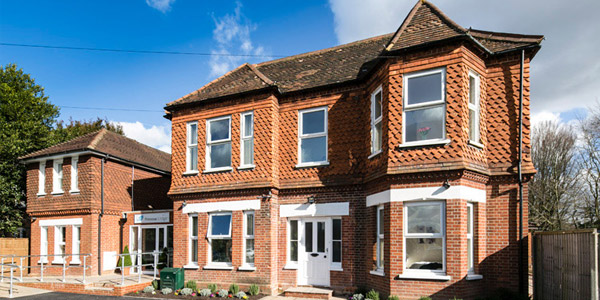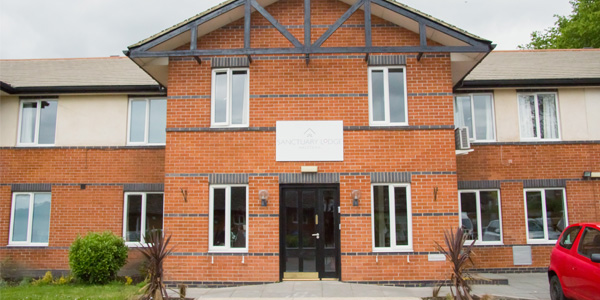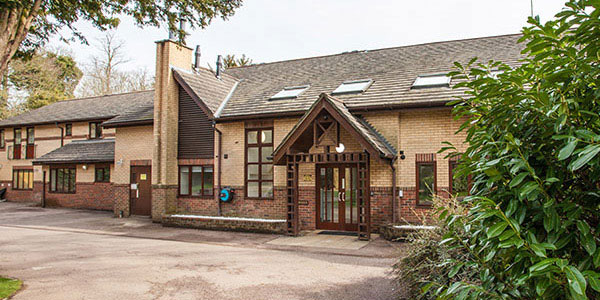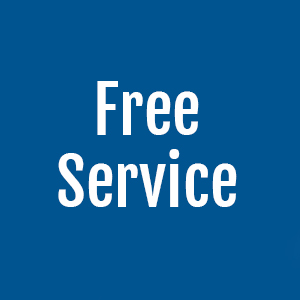Alcohol & Drug Rehab in Bromley
Addiction Helper are pleased to provide addiction treatment advice and information about alcohol and drug rehab treatment services in the London Borough of Bromley, which is in the South East of London, England. The London Borough of Bromley is part of Greater London, England which has centralised and decentralised detox and rehab services as per local council planning and budget. The Borough of Bromley is the largest of all of the city of London Boroughs including all Outer London council districts. Bromley’s postcode areas are BR, CR, DA, SE, TN.
We are able to plan your detoxification and rehabilitation programme anywhere in Bromley, which is split into a number of wards, including Mottingham, a dichotomous residential district located east of Grove Par and nearby Chislehurst North, Plaistow and Sundridge, Bickley, Chislehurst and Bromley Town in the North. In the north east of Bromley is Cray Valley West and Cray Valley East. Addiction rehab in the East of Bromley includes Orpington and Chelsfield and Pratts Bottom. Alcohol detoxification in the London Borough of Bromley Central Area includes Petts Wood and Knoll, Farnborough and Crofton, Bromley Common and Keston.

At Primrose Lodge we genuinely care that our patients make a full recovery …
- Private
- Holistic Treatment
- Onsite gym
- Residential
Featured Rehabs
Sanctuary Lodge is a state of the art detox and rehabilitation facility, se…
Liberty House Clinic is a fully furbished detox and rehabilitation facility…
Banbury Lodge is a private UKAT rehab facility based in Banbury, Oxfordshir…
-
- 12 Step
- Group Setting
- Free
- Outpatient
-
35 London Road
(Entrance via front door BDAS building)
35 London Road.
BR1 1DG0 review- 12 Step
- Group Setting
- Free
- Outpatient
-
- 12 Step
- Group Setting
- Free
- Outpatient
-
- 12 Step
- Group Setting
- Free
- Outpatient
-
- 12 Step
- Group Setting
- Free
- Outpatient
- Load More
Drug & Alcohol Rehab Services in London
- A
- B
- C
- D
- E
- F
- G
- H
- I
- J
- K
- L
- M
- N
- O
- P
- Q
- R
- S
- T
- U
- V
- W
- X
- Y
- Z
What Is Rehab?
Residential rehabilitation – more commonly abbreviated to “rehab” – describes the process by which an addict is treated at a dedicated facility, and is also the name given to such a facility itself (hence the phrase “going to rehab”). In rehab, clients typically undergo two main phases of treatment: firstly, detoxification (“detox”) and withdrawal, with assistance from a medical team (which may include the provision of certain medicines to alleviate the worst effects of withdrawal symptoms); and secondly, once detox has cleansed the client’s system of substances of abuse, a period of therapy designed to reveal and address the root cause/s of their addiction.

This treatment – combined (in a unique personalised treatment plan for each client) with other elements including dietary and fitness regimes into one holistic approach – takes place in a secure, tranquil, (usually) aesthetically attractive and (crucially) confidential setting, perfectly conducive to introspection and contemplation on the part of the client who is thus able to focus wholly on their recovery.
There is a broad consensus that rehab is the most effective approach to treating addiction, in terms of its ability to provide a platform upon which an addict can build a permanent recovery: the combined focus on both short-term (physical dependency) and long-term (psychological addiction) challenges, under one roof and in one cohesive treatment programme, generally has a more positive outcome than other treatment models, and as a result in mainstream culture “rehab” has now effectively become synonymous with addiction treatment.
How Can I Get Someone into Rehab?
In general, the NHS provides a high standard of care, including in its treatment of addiction. Unfortunately, however, demand is growing (especially in very densely populated areas such as Bromley) and resources are being stretched to breaking point: waiting times are often distressingly long, and time never ceases to be a factor when dealing with addiction because of the constant risk that the addict will suffer a fatal overdose or fall victim to accident or an act of violence in which substance abuse plays a key role.
As a result, if you are suffering from an addiction and are ready to acknowledge your condition and reach out for help, it is important not to waste any more time before investigating private options.
It’s important to recognise that it is well nigh impossible to treat somebody for an addiction who is not willing to be treated; if someone you love is struggling with an addiction, and you are conscious that for the aforementioned reasons time is a factor, you may despair that they are not showing themselves ready to own up to their addiction and ask for help.
We can assist at this point, by engaging with you to discuss arranging an intervention or other tactics that you can try with the intention of getting them to acknowledge their condition – while if you yourself are struggling with addiction and are ready for help we can assist you in making the necessary preparations ahead of a stay in rehab. Either way, do not let more time go by: call us today to speak with an addiction specialist about what private options are at your disposal.
Advantages of Private Rehab
As mentioned above, rehab provides the perfect combination of security, tranquillity and confidentiality within which to focus fully upon recovery away from the distractions and temptations of the environment within which you have fallen into the addiction trap – and away also, of course, from the substance/s of abuse to which you have become addicted.
A highly skilled and experienced medical team will assist you throughout your stay in rehab, from your initial assessment, into detox (during which you will be monitored for your safety, and medication may be prescribed to alleviate as fully as possible any withdrawal symptoms you may experience) and subsequently into therapy.
A broad variety of therapy models (in both group and one-to-one settings) are available at rehab, aimed at uncovering the fundamental reasons for your addiction (and addressing them) and providing you with the necessary psychological defence mechanisms against relapse. Your individual treatment plan will encompass bespoke dietary and fitness regimes, while you will also have access to an array of other facilities (which will vary from one rehab to another and according to the level of treatment which you have requested).
Because recovery is by no means complete at the end of a stay in rehab – it is instead a lifelong process requiring constant dedication and diligence – good rehab providers offer free aftercare (typically for up to a year following your stay) to continue supporting you during this next crucial phase of your recovery.
What Does Rehab Cost in Bromley?
The cost of private rehab can vary a great deal from one facility to another, by treatment programme, and depending on factors such as optional extras. Roughly speaking, standard costs for rehab in or near Bromley range from between £5,500 and £11,000 per month; however, the cheapest treatment can start from as little as £834 per week. For more details, call us to speak with one of our advisers.
Bromley NHS Addiction Treatment Options
The costs suggested above can often feel intimidating (though it is vital to recognise that compared with the cost – financial, and in terms of the costs to your physical and mental health, your relationships, and your life prospects – of continuing to sustain an addiction, the cost of rehab may be considered an extremely valuable investment); moreover, some people feel that they are unable to spend weeks or even months at a time away from family commitments or professional obligations.
Advantages of NHS Treatment
Although there are certain problems associated with seeking treatment from the NHS, as have been mentioned previously, it’s important to recognise that there are advantages to taking the NHS route. The most obvious of these is of course cost: NHS services are free at the point of use.
The NHS also has a geographical advantage in that it operates across the country while some rehabs are a long way away from Bromley (though this may in fact be an advantage for those wishing to be as far as possible from temptation…). NHS services are typically of a high standard – though quality does vary from one NHS trust to the next, as do waiting times as noted above.
Addiction Support Groups
A number of organisations exist across the country to provide assistance to recovering addicts, and some of these operate a support group model. Support groups are groups of individuals who are themselves recovering addicts – some only recently free from addiction, while others may have been clean for many years – and who come together at regular meetings to give and take mutual support: sharing their stories of addiction, giving advice on how to resist relapse, showing solidarity and sympathy when group members are struggling, and providing the simple companionship which can mean so much in times of difficulty and loneliness.
Support group attendees can come from all walks of life, brought together by their shared experience of addiction and recovery; typically, attendance at support groups is free and the only qualification for participation is a commitment to leading a life free of substance abuse.
The most famous support group organisation, and the one on which most others are modelled, is Alcoholics Anonymous (AA) which was founded in 1935 and runs on a 12-step programme of personal and spiritual development, with one of the steps being a recognition that a higher power – such as God – can assist with an alcoholic’s recovery.
Narcotics Anonymous (NA), founded in 1953 and based directly upon the AA model, is the second-largest support group organisation worldwide and caters to recovering drug addicts specifically. In a similar vein, but supporting those recovering from addictions to specific substances, are Cocaine Anonymous (CA), Heroin Anonymous (HA), Marijuana Anonymous (MA) and Crystal Meth Anonymous (CMA), all of which operate 12-step programmes. There are also support groups such as Al-Anon and Nar-Anon assisting the families and friends of addicts which typically hold meetings alongside those for the addicts themselves.
Support groups typically meet weekly, though each local chapter is managed independently and meeting times and venues are subject to change. To find information on meetings in or near Harrow, see the relevant websites:
Alcoholics Anonymous; Narcotics Anonymous; Cocaine Anonymous; Heroin Anonymous; Marijuana Anonymous; Crystal Meth Anonymous.
Types of Counselling

Individual counselling is a type of help for recovering addicts which can be particularly beneficial for people with very busy schedules. Individual counselling may be engaged in following a stay at rehab (or other addiction treatment) as a supplementary aid to recovery, or perhaps as a way of managing an addiction before engaging in a full training programme. Private addiction counsellors work in ways similar to the operations of “normal” psychotherapists, although obviously the focus is on addressing the causes and consequences of addiction; counsellors offering a broad range of approaches to therapy and different therapy models can be found across the country, including throughout the capital.
Counsellors can be seen by private appointment, typically on a weekly basis, and usually charge a fee per appointment; while some counsellors make themselves available for emergencies, it is more common for access to be limited to working hours.
Reaching Bromley in London
The London Borough of Bromley is one part of the Greater London area. It’s located just south of the River Thames and is easily reachable via the A20, marking its northern border, and the A232, passing straight through the middle of the borough, dividing it into a north and south parts. Possibly due to the good road network created in Bromley, during a recent survey, 54.7% of the local population confirmed they prefer a car as their main method of transportation/
The public transport in the area is well-maintained, and all major towns and villages are covered by buses and trains. There are 26 railway stations within Bromley, serviced by the National Railways, including Bromley South and Bromley North railway stations.
The fastest route if you’re landing in London would be from the London City Airport (LCY), southbound via the A102.
The Bromley wards are: Mottingham & Chislehurst North, Crystal Palace, Penge & Cator, Copers Cope, Bromley Town, Plaistow & Sundridge, Chislehurst, Cray Valley West, Cray Valley East, Petts Wood & Knoll, Bickley, Shortlands, Kelsey & Eden Park, Clock House, West Wickham, Hayes & coney Hall, Bromley Common & Keston, Farnborough & Crofton, Orpington, Chelsfield & Pratts Bottom, Darwin, and Biggin Hill.
Close by, you can find the neighbouring London boroughs of Bexley, Greenwich, Lewisham, Southwark, Lambeth, and Croydon.
How to Get to Primrose Lodge from Bromley?
Primrose Lodge is a unique rehab clinic located in the historic town of Guildford, Surrey. Boasting a private gymnasium, purpose-built treatment rooms and en-suite bedrooms, this attractive, spacious building is the perfect getaway for those battling addiction, while Primrose Lodge’s highly experienced staff are on hand 24/7 to ensure patients’ safety and comfort. Integrated treatment programmes designed to address the root causes of addiction are provided in a tranquil and confidential environment in which patients can focus wholly upon their recovery.
To get to Worplesdon from Bromley, head out on the A222 and then take, in turn, Shortlands Road, Hayes Lane/B251, Hayes Hill Road, Tiepigs Lane, Addington Road and the A2022; then join the B269. After four kilometres, take in turn the B270, Narrow Lane, Succomb’s Hill and the A22/Caterham Bypass; then join the M25 towards Gatwick Airport. At junction 10, join the A3 and remain on that road for another 10 kilometres before taking the A3100 onto the A320, and finally join the A322/Worplesdon Road.
For those travelling by train, head into Victoria from Bromley South; from Victoria head to Clapham Junction and change there for national rail services direct to Worplesdon.
Primrose Lodge
Perry Hill
Worplesdon
Guildford
Surrey
GU3 3RY





